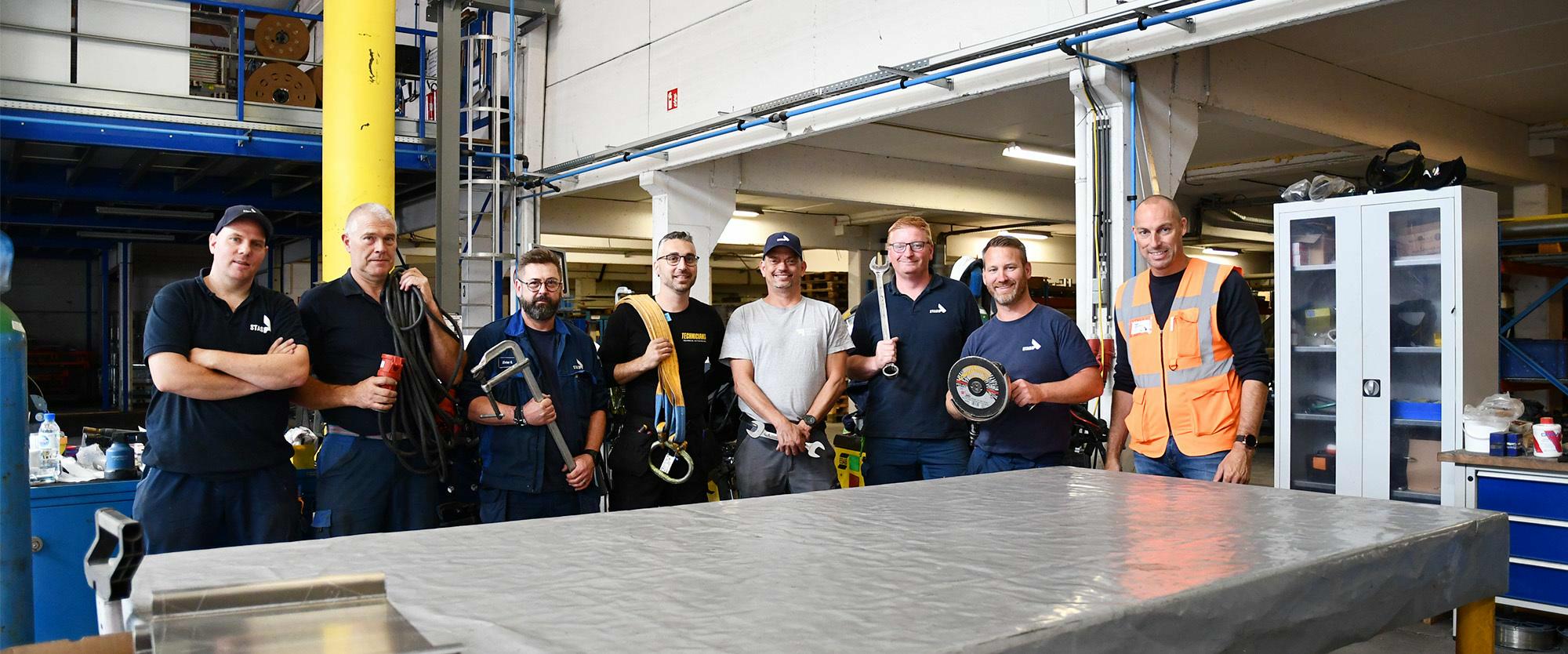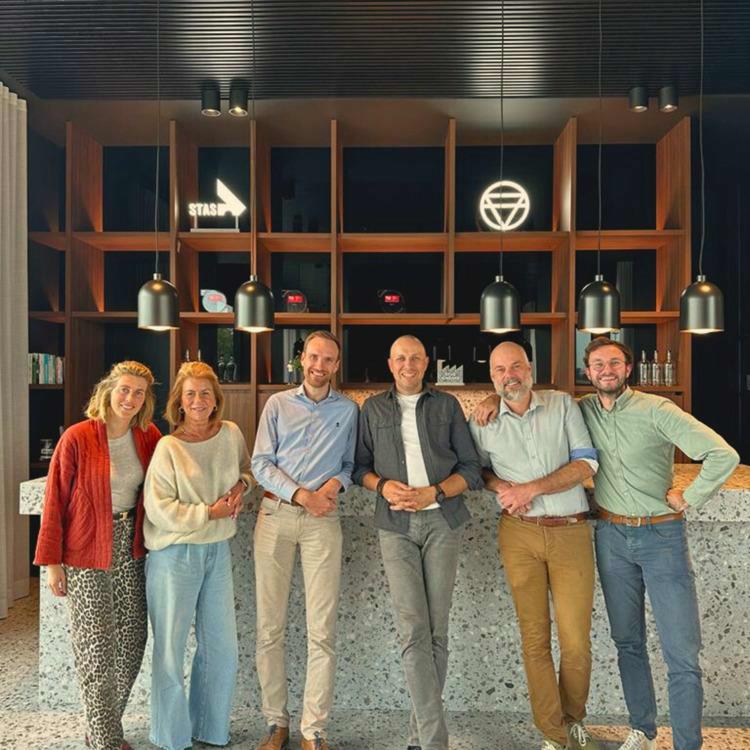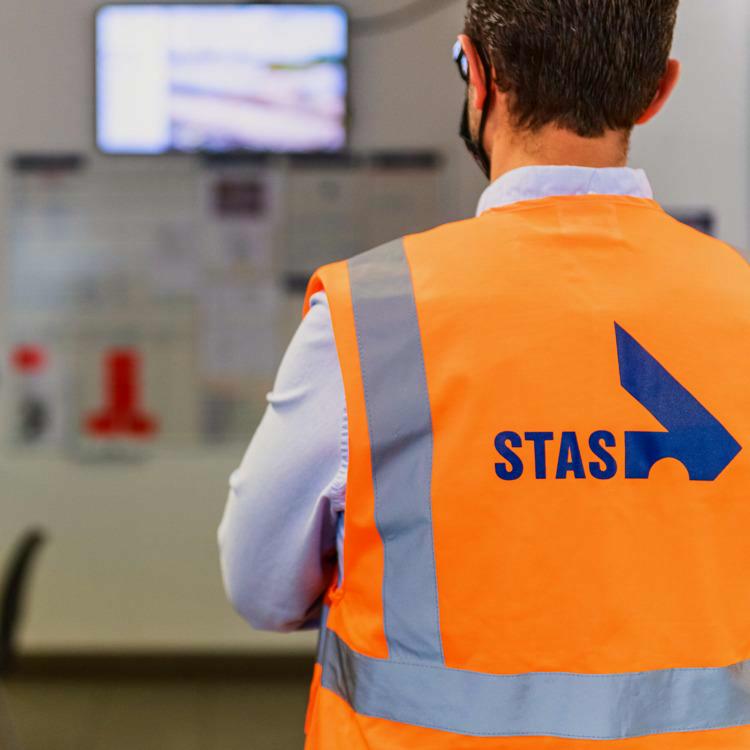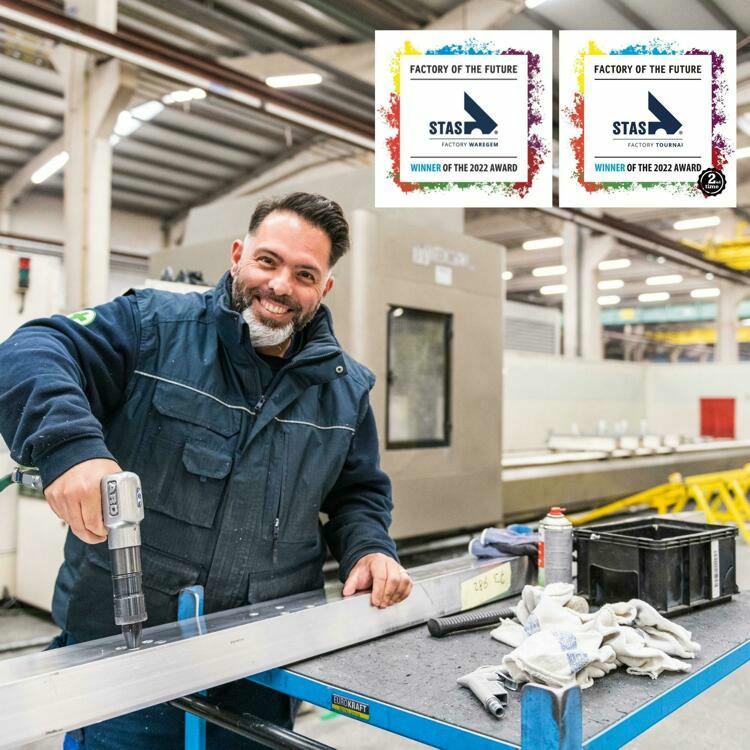How the STAS Maintenance team halved downtime in the factories

The STAS maintenance team was formed in 2019 and has since grown into an eight-member team that already has some great achievements on their record: for example, the downtime of the machines was reduced by half. Maintenance expert Yves Van Den Broucke spoke with Maintenance Magazine and explained why the team is so essential to the continuity of STAS.
In the last three decades, there has been a strong focus on automation in the STAS factories. As a result, processes are becoming shorter and faster. It is therefore even more important that processes are seamlessly connected and that breakdowns can be prevented to allow the entire process to run as smoothly as possible. One breakdown can bring the entire chain to a standstill. Maintenance is crucial to prevent this and to be able to guarantee production times.
Plan of action and structure
In 2019, Yves took matters into his own hands and claimed responsibility for all maintenance matters. At that time there were four maintenance technicians at STAS, but no agreements or instructions were made or drawn up. All maintenance was done strictly on request or when people thought of it. This approach resulted in frequent breakdowns and a lot of frustration in the workshop. STAS could do better and Yves was 100% sure about that.
He started by mapping out all problems and assigning priorities. Blessed with ample experience, Yves knew where to get started. He started by tackling some essential repairs and some important quick wins. This way, impact could be realised quickly and these actions offer an answer to internal frustrations. At the same time, essential personnel was recruited to manage this project.
The next step? Preventive maintenance. Regular maintenance of the machines prevents many problems. In this way, we can continue to guarantee our output. Here, a clear distinction is made between essential and less essential machinery. The welding robots are essential for the continuity of production. Therefore, we ensure that we always have a stock of all important wear parts. This allows us to respond quickly when needed. For less essential machines (think: forklifts, aerial work platforms and overhead cranes), a maintenance contract is agreed upon with the manufacturer.

Knowledge exchange
The eight-headed Maintenance team consists of five internal employees and three external people who are deployed across the two Belgian sites (STAS Factory Waregem and STAS Factory Tournai). There is a lot of expertise within this team:
We have 2 technicians who work on projects and help with maintenance and possible issues. In addition, in STAS Factory Waregem there are 2 technicians for the robot line and in STAS Factory Tournai there is 1 technician with expertise in the mechanical segment who also has some knowledge of the electrical segment. The three external parties within the Maintenance team are specialised in malfunctions: two breakdown technicians are present in STAS Factory Waregem and one in STAS Factory Tournai.
To be able to intervene quickly, the robot team works in a shift system. The team at STAS Factory Tournai works autonomously, but in case of larger problems they can count on support from STAS Factory Waregem. A deliberate choice was made for a mix of internal and external employees. That way, we can keep a lot of knowledge in-house and we can count on the experience, expertise, and certificates of the external employees. However, we strongly believe in giving our people opportunities. That is why we always offer opportunities to STAS employees who want to take on more responsibility or who want to expand their skill set. However, they have a good understanding of how the factories work and how the trailers are built. The two technicians for the welding robot, for example, worked on the robot line for years. They know the processes through and through and know where problems occur. The combination of those different backgrounds provides magnificent knowledge sharing and makes the team stronger.
Engagement
Nevertheless, everyone in the factory is responsible for the proper functioning of the machines and the production process. Although the Maintenance team has initially set everything in order, everything must be maintained properly. The team cannot do this by themselves, all employees are needed for this. The operators are therefore also involved in the 5S process, in which especially the third S (cleaning) made the difference for the Maintenance team.
Operators clean their equipment, tools and workstations daily. They notice it immediately when there is a leak or a defect. Thanks to daily maintenance a lot of hidden defects are discovered, and the team can intervene promptly before it becomes a major problem. Daily, weekly and monthly cleaning instructions are posted on all important and vital machines. This way, anyone can check the machine and the responsibility is back with the operator.
Problems are reported to the team leader during the daily meeting at the workstation and passed on to the maintenance team via the QMS (Quality Management System). The machine or tool in question is given an orange label so it’s easily recognisable for the maintenance technician and he can validate his work via the checklist on the back. Operators immediately see that the problem has been addressed. That is necessary to create engagement in the workshop. The maintenance team cannot tackle the problems if no reports are received. It has to come from both sides.
In a straight line to preventive maintenance
Since the start of the team, downtime has already been reduced by half. Thanks to the engagement in the workshop, it is possible to react much more quickly. But we want to go even further. Since everything is logged in the QMS system, we can analyse that data: what are recurring problems, what were solutions that could be improved, and can we intervene in a different way?
In short: the Maintenance team has become indispensable in the daily operation of the STAS plants. The work is certainly not done yet. Together we do everything to make sure STAS trailers roll out of production as smoothly as possible.
*Based on the article 'Five-year plan for maintenance team' published in Maintenance Magazine: read the full (Dutch) article here.





